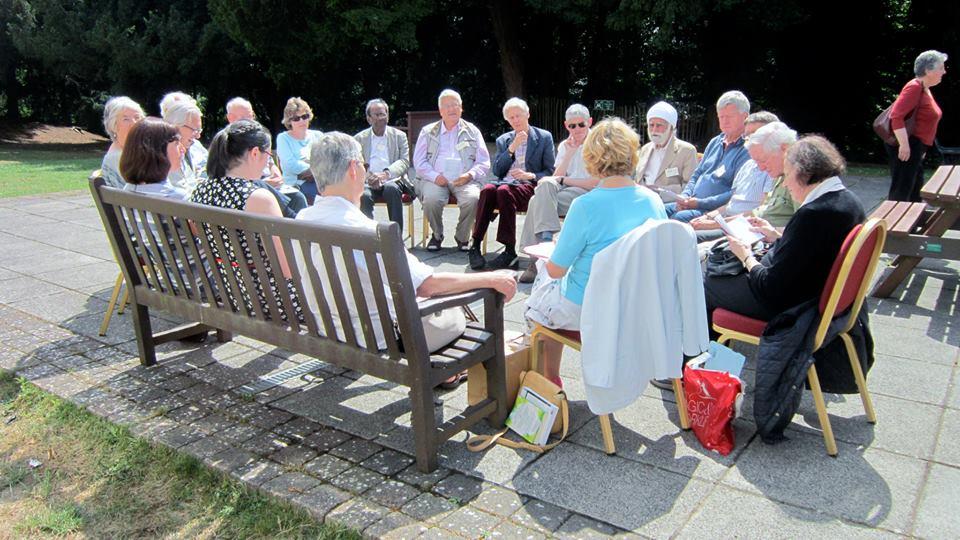Submitted by Administrator on Wed, 15/06/2016 - 09:58
Jenny Kartupelis of the World Congress of Faiths (WCF) explores the development of inter-faith dialogue over the past century, and looks forward to a fascinating conference coming up in September.

One of the longest-established interfaith organisations, the World Congress of Faiths (WCF), turns 80 this year and is celebrating with a programme designed to extend its reach and complement the work of other interfaith bodies.
The Congress is a Fellowship that has its roots in the World’s Parliament of Religions, first held in Chicago in 1893, and the Religions of Empire Conference, held in London in 1924. Inspired by these movements and his own spiritual experiences, explorer Sir Francis Younghusband organised two international conferences in London, and after the second of these, in 1936 and the shadow of a looming World War, WCF became established as an independent body.
Nowadays there are many more interfaith organisations, ranging from the small and local to the international; some located in academe and running major research programmes while others may be based in large cities or small towns. The focus can be on delivering social action, on working with secular society, or on facilitating personal dialogue.
Individuals and groups from different faith or belief traditions have developed a rich variety of relational modes, including discussion groups, scriptural reasoning, joint social action and advocacy. However, none are mutually exclusive and all are underpinned by a desire for trust rather than suspicion, and creating understanding in place of ignorance.
In planning for its anniversary celebration, the World Congress of Faiths decided to review its work and consider its own role, questioning whether its long history put it in a unique position to offer a particular mode of relationship-building. As an organisation for individuals, it welcomes people from all faiths and beliefs who have a desire for constructive interaction and a mind open to other ways of thinking, living and growing spiritually.
No-one is asked to represent their tradition, nor act on its behalf, only to reflect, share and learn through informal meeting and more formal events.
WCF also publishes an international journal, Interreligious Insight, which is to be found in many educational establishments.
Members and friends of WCF were in agreement that its unique role in a pluralist society is to bring people together to contemplate, discuss and promote the importance of recognising spiritual life, individual and collective, in the modern world. Where religious divisions are assumed by secular society to exist and to be a major problem, WCF can act as one of the advocates and exemplars for people from different traditions fostering better understanding between themselves and within secular society; primarily by sharing the various ways in which they relate to the spiritual journey that humanity must make, whether together or alone.
Consideration and contemplation of the roots of interfaith practice throws light on the nature and potential of that understanding. With this in mind, WCF is holding a conference, Religious Pluralism and Interfaith Dialogue: Learning for the Future on 23 September at Emmanuel College Cambridge. Speakers will look at aspects of interfaith theology and practice and its influence on wider society; delegates will be able to take part in discussion about their own experience and study, pooling knowledge that can be used to produce ideas and resources for everyone – but in particular for the generation that will be the next champions of the vital need for all people of faith and belief to work in harmony.
If you want to be part of that discussion, you can find more information and register to come to the day at www.worldfaiths.org/conference-2016 and look out for a report on the same website after the event.
